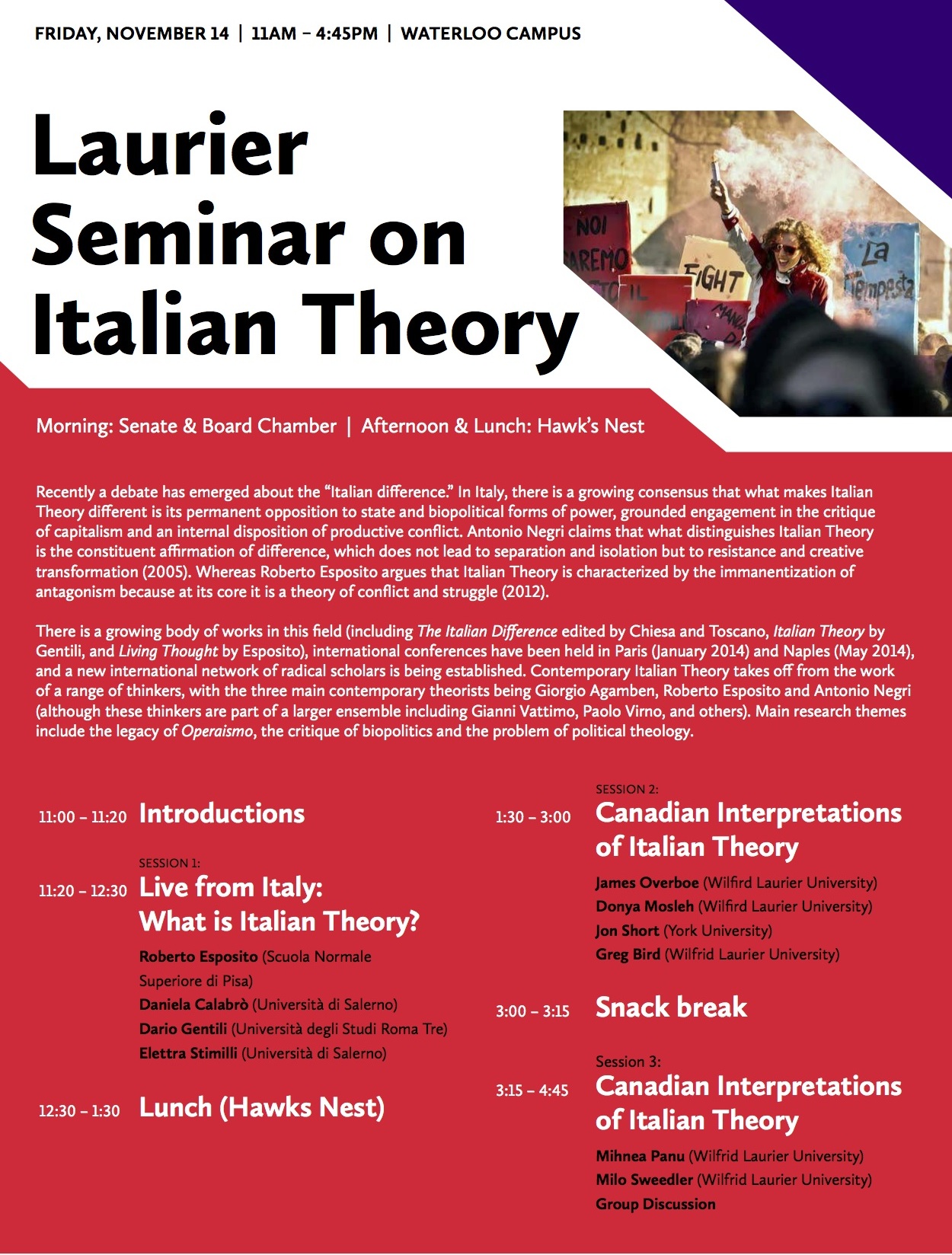Recently a debate has emerged about the “Italian difference.” In Italy, there is a growing consensus that what makes Italian Theory different is its permanent opposition to state and biopolitical forms of power, grounded engagement in the critique of capitalism and an internal disposition of productive conflict. Antonio Negri claims that what distinguishes Italian Theory is the constituent affirmation of difference, which does not lead to separation and isolation but to resistance and creative transformation (2005). Whereas Roberto Esposito argues that Italian Theory is characterized by the immanentization of antagonism because at its core it is a theory of conflict and struggle (2012).
There is a growing body of works in this field (including The Italian Difference edited by Chiesa and Toscano, Italian Theory by Gentili, and Living Thought by Esposito), international conferences have been held in Paris (January 2014) and Naples (May 2014), and a new international network of radical scholars is being established. Contemporary Italian Theory takes off from the work of a range of thinkers, with the three main contemporary theorists being Giorgio Agamben, Roberto Esposito and Antonio Negri (although these thinkers are part of a larger ensemble including Gianni Vattimo, Paolo Virno, and others). Main research themes include the legacy of Operaismo, the critique of biopolitics and the problem of political theology.


